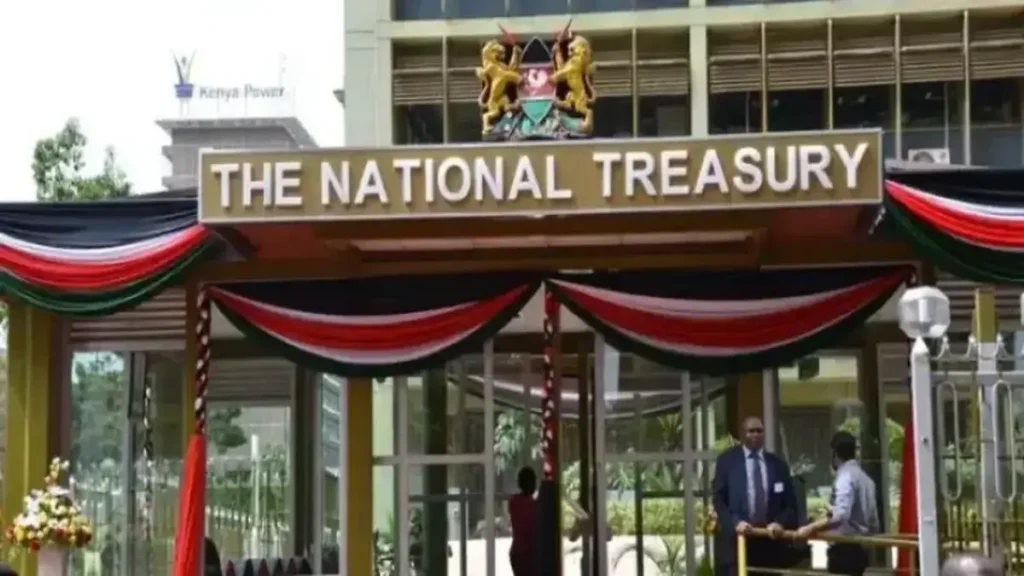In a bold move to bolster revenue collection, Kenya’s National Treasury has proposed significant amendments through the Tax Laws (Amendment) Bill for 2024. Published on November 1, the bill aims to address ongoing fiscal challenges and align with global tax standards, reflecting the government’s commitment to enhancing its financial framework in a rapidly changing economic environment.

The national treasury of the Government of Kenya: Photo courtesy
One of the most notable proposals is the introduction of a Minimum Top-Up Tax aimed at multinational corporations operating in Kenya. This tax seeks to ensure that these firms contribute a minimum effective tax rate of 15% on profits generated within the country. By targeting large multinationals, the government hopes to level the playing field for local businesses that often struggle to compete against well-resourced foreign entities. However, this move has raised concerns about its potential impact on foreign investment and economic growth, as businesses may reconsider their operations in Kenya if faced with higher tax burdens.
The bill also expands digital taxation to include a range of services such as ride-hailing and food delivery platforms. As the digital economy continues to flourish in Kenya, this measure aims to capture revenue from rapidly growing sectors that have previously operated in a largely untaxed environment. While proponents argue that this will ensure fair taxation of all businesses, critics warn that increased operational costs could be passed on to consumers, ultimately affecting affordability and access to these services.
Another significant aspect of the proposed amendments is the heightened scrutiny on employee benefits and pension contributions. The government aims to tighten regulations surrounding these areas, which could lead to reduced disposable income for many Kenyans. This change is particularly concerning for workers who rely on these benefits as part of their overall compensation packages. Additionally, the proposed repeal of the Affordable Housing Relief has sparked debate about its implications for middle-class citizens aspiring to homeownership. Critics argue that removing this relief could make housing even less accessible, exacerbating an already challenging situation in Kenya’s real estate market.
Government spokesperson Isaac Mwaura has defended the reforms, asserting that they are designed to enhance disposable incomes through increased non-taxable benefits and improved pension contributions. He emphasised that the aim is not only to increase revenue but also to create a more equitable tax system that supports sustainable economic growth.
However, public sentiment surrounding these proposals remains mixed. Many Kenyans are still reeling from the backlash against the previously rejected Finance Bill for 2024, which faced criticism for its perceived heavy-handedness and lack of public consultation. As such, there is a palpable sense of apprehension regarding how these new proposals will be received by both the public and various stakeholder groups.
As these proposals undergo public consultation, stakeholders—including business leaders, civil society organisations, and ordinary citizens—are encouraged to engage in discussions about their potential implications for Kenya’s economic landscape. The National Treasury aims for these changes not only to foster sustainable growth but also to address the nation’s rising public debt, which has become a pressing concern in recent years.
The outcome of this consultation process will be crucial in shaping Kenya’s fiscal policy moving forward. As the government navigates these complex issues, it remains to be seen how these reforms will impact both local businesses and everyday Kenyans in an economy striving for resilience amid global uncertainties.